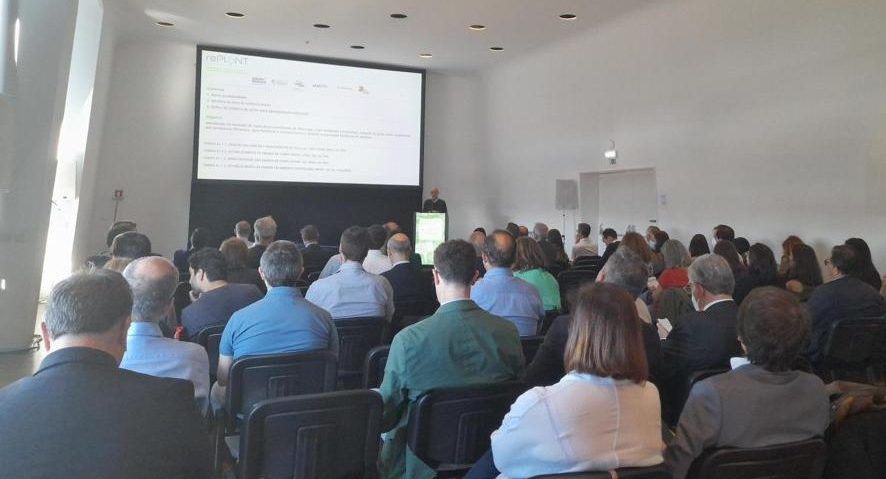The introduction of more resilient and productive plant species, the use of remote sensing technologies to examine the earth’s surface or a simulator that predicts the evolution and impact of forest fires. These were some of the themes highlighted during the II rePLANT Technical Seminars. A meeting organized by REN and Forestwise, which took stock of a year and a half of an initiative which results from the collaborative effort between educational institutions, forestry/energy companies and Research & Innovation (R&I) entities, in contributing to the valorization of forests.
In the project’s contributions to Forest and Fire Management, rePLANt’s first line of action, the field trials of five species/provenances of Maritime Pine were presented, with the aim of introducing in the market species that are more resilient, productive and capable of generating greater income for forest producers. The trials are being conducted by Sonae Arauco, Instituto Superior de Agronomia (ISA) and Instituto Nacional de Investigação Agrária e Veterinária (INIAV). In addition to species improvement, EDP Labelec and the University of Trás-os-Montes and Alto Douro (UTAD) showed the importance of using LiDAR, a remote sensing technology to examine the earth’s surface, as a georeferenced scanning tool to support the quantification of biomass in inspection areas.
The activities developed in Risk Management, the second line of action, show advances by the University of Coimbra and whereness in monitoring forest fires, through a fire propagation simulator, which predicts the evolution and impact of fire in a given location. This simulator aims to protect electrical infrastructures installed in locations prone to rural fires and which are the responsibility of REN, one of the partners that also presented advances in the surveillance system consisting of a video camera, a thermal and optical camera, and a weather station. This surveillance system is already installed in the Serras do Porto Park area, and will be followed by Góis and Nisa.
Also, in this line of action, the School of Engineering of the University of Porto (FEUP) and CoLAB ForestWISE presented a study about risk communication, applying the mental models of Carnegie Mellon University. The conclusions of this study are intended to create an effective risk communication plan, which involves the dissemination of new behaviors and practices that reduce the risks associated with the use of fire, especially in burning.
In order to minimize the risk of fire near the power grid, UTAD, CoLAB ForestWISE and E-REDES presented their work about fuel evaluation and management. This analysis allows the creation of fire behaviour models and, consequently, the protection of electrical infrastructures.
As part of the Circular Economy and Value Chains, The Navigator Company, Fravizel and the Institute for Systems Engineering and Computers, Technology and Science (INESC TEC) presented advances in equipment for forestry operations. The presentation focused on the ARG forestry machine that, besides allowing the terrain to retain more water, contributes to the increase of carbon accumulation in the soil. INESC TEC is integrating digital tools in this machine that improve the efficiency and safety of forestry operations, with less consumption and greater environmental gain.
Finally, ForestWISE, INESC TEC and Trigger Systems discussed about information sharing between machines and forSCOPE, a decision support system adapted to the specificities of the forestry sector. This advanced planning system for the forestry supply chain has numerous features that allow minimizing logistics and operation costs, visualizing changes in real time and historical data, thus contributing to the digitalization of the forest, as it integrates tools that modernize and make more efficient the forestry supply chain.
Presented at Museu do Oriente, in Lisboa, in front of an audience of forestry and energy sector entities, these results show rePLANt’s path towards providing innovative solutions to the Portuguese forest.

